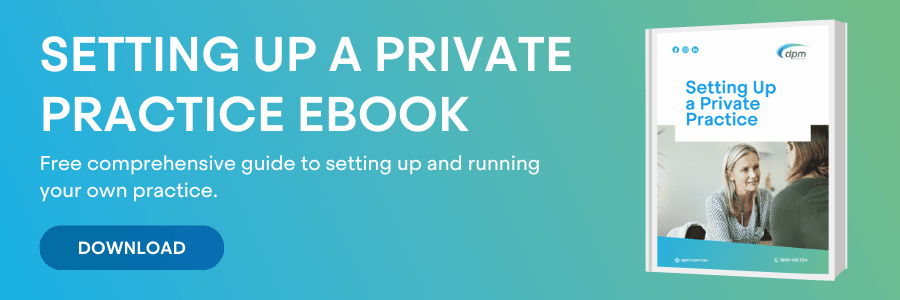When you intend to become an employer it is important you are aware of your payment and reporting obligations. The relevant authorities expect each employer to be across their obligations and to adhere to them. Non-adherence may result in significant penalties being imposed.
The following information is a summary only and is intended to create awareness of your obligations as an employer. Links to relevant websites have been provided to assist you in becoming familiar with your obligations.
The following items need careful consideration prior to you becoming an employer:
- Ensure that you are set up with Single Touch Payroll (STP) Compliant Software;
- Employee Tax File Number Declaration;
- PAYG Withholding (PAYGW);
- Superannuation for Employees;
- Employee payroll reporting through STP ready payroll software; and
- WorkCover Insurance.
Single Touch Payroll (STP) Compliant Software
All payroll transactions need to be reported to the ATO via Single Touch Payroll (STP) compliant software. STP compliant software enables employers to advise the ATO of new employees – doing away with the need to submit manual Tax File Number Declaration forms. If your software is yet to implement this feature please complete a Tax File Number Declaration form. Refer to this ATO link for further information ATO Tax File Number Declarations Information.
Pay As You Go Withholding Tax (PAYGW)
As you will be paying wages you are required to be registered for Pay As You Go Withholding Tax (PAYGW) with the Australian Taxation Office (ATO). If not already actioned by DPM, refer to this ATO link for guidance on how to register ATO Registering for PAYG Withholding Information.
When paying wages you are required to withhold tax from each employee wage payment made to employees. Refer to this ATO link for further information and to assist you with calculating the tax to be withheld ATO PAYG Withholding Information.
Once registered with the ATO as a PAYG Withholder there will be new Pay As You Go Withholding Tax (PAYGW) fields on your Business Activity Statement/s (BAS). You are obligated to include both the gross wages paid and the tax withheld in these fields for each period. The tax withheld will be included in the net amount payable/refundable on your BAS. If DPM complete your BAS, please provide us with your gross wages and tax withheld for the BAS each period. The following ATO link explains this further ATO PAYGW – BAS Reporting Requirements Information.
If you are not already registered with the ATO as a PAYG Withholder, DPM offers this service to action this on your behalf.
Superannuation for Employees
As an employer you have 3 main superannuation obligations as follows:
- Super Guarantee;
- Choice of fund for employees and Stapled super funds; and
- SuperStream.
Super Guarantee
As an employer you are required to contribute towards superannuation (under the Super Guarantee Act) on behalf of your employee/s. For details of the current Super Guarantee rate on ordinary earnings and a broader overview of employer Super Guarantee obligations, please visit this ATO link ATO Super for Employers Information.
Choice of fund for Employees and Stapled super funds
As an employer who is required to pay the Super Guarantee you may be required to offer your employee/s a ‘choice of super fund’ to which you will pay the Super Guarantee contributions. The following ATO link provides information on how to manage this for each employee ATO Choice of Fund Information.
If your new employee does not nominate a super fund, you as the employer should request Stapled Super Fund details from the ATO. The following ATO link provides information on how to obtain Stapled Super Fund details ATO Stapled Super Funds for Employers
SuperStream
As an employer you must provide data and payment electronically. Many of the STP compliant softwares have built on super payment functions, alternatively you may choose to use the ATO Small
Business Superannuation Clearing House. The following ATO link provides information on the ATO Small Business Superannuation Clearing House
Employee Reporting
Instead of reporting employee payroll information at the end of the financial year, employers will need to report this information each pay run through their STP enabled software.
This means that businesses will no longer need to complete payment summaries at the end of the financial year.
WorkCover Insurance
WorkCover insurance is compulsory insurance for Victorian employers which provides employers with insurance cover for the cost of benefits if your employees are injured or become ill because of their work.
The insurance may cover:
- Replacement of lost income,
- Medical and rehabilitation treatment costs,
- Legal costs, or
- Lump sum compensation in the event of a serious injury.
Further information for Victorian employers is provided in WorkSafe – Your WorkCover Insurance – A Guide for Employers. For employers in states or territories other than Victoria, please research WorkCover online and follow the link to your relevant WorkCover department.
Employee Job Description – Optional
In addition to the above we recommend you document a job description/ role outline for your employee/s to clearly define the tasks they will undertake as part of their employment. This will ensure the employee clearly understands your expectations and will assist you with managing their performance if required.
Awards & Agreements
The minimum conditions of employment are enshrined in the relevant modern awards or legislation. A business can also enter into an employment agreement that covers the work that the employee does and provides the terms of their engagement. Importantly, provided the terms of that agreement are equal to or better than the minimum entitlements the employee would otherwise be eligible for under the relevant modern award and/or legislation, then the agreement will apply. If there is no agreement in place and a modern award covers the business and the work performed by the employee, then the minimum pay and conditions in the modern award will apply.
There are 122 modern awards that cover most occupations in Australia, which means that many employees who are not covered by an employment agreement will most likely be covered by a modern award.
Where no modern award or agreement applies, the minimum pay and conditions set out in the National Employment Standards will apply. For further information on modern awards and employment agreements, refer to this section of the Fair Work Ombudsman website.
DPM currently are not positioned to advise on the above matters in detail but should you want to discuss this further please contact your Tax Consultant who can determine your requirements.
Disclaimer: * This article contains general information only and does not consider your personal objectives, financial situation or needs. You should assess whether the information contained in this communication is appropriate in relation to your own objectives, financial situation or needs.






